APS Janet Taylor Spence Award for Transformative Early Career Contributions
The APS Board of Directors is pleased to announce the 2012 recipients of the APS Janet Taylor Spence Award for Transformative Early Career Contributions, in recognition of the significant impact their work is having in the field of psychological science. The award recognizes the creativity and innovative work of promising scientists who represent the promising future ahead for psychological science. It places these recipients among the brightest minds in our field.
This award is a fitting tribute to its namesake, Janet Taylor Spence, the first elected President of APS. Whether in the field or the laboratory, Spence’s distinguished career is characterized by both its empirical rigor and its innovative theoretical approach. Her willingness to question the accepted led her to develop assessment techniques that continue to be widely used.
The awards will be conferred at the 24th APS Annual Convention in Chicago, IL, in May. For more details on the convention, visit www.psychologicalscience.org/convention.
Greg Hajcak
Aaron C. Kay
Iris-Tatjana Kolassa
Hakwan Lau
Tania Lombrozo
Candice L. Odgers
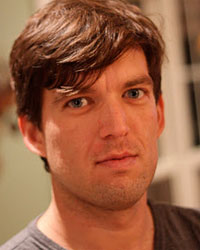 Greg Hajcak
Greg Hajcak
Stony Brook University
What is the focus of your award-winning research?
A large portion of the work in my lab is basic in nature and utilizes psychophysiological measures to understand emotion, cognition, and their interaction. We are interested in how people process motivationally salient events and stimuli (e.g., making errors compared to correct responses; winning compared to losing money; viewing pleasant and unpleasant pictures compared to neutral pictures). Although we primarily use event-related brain potentials, or ERPs, we also employ the startle reflex, heart rate, skin conductance, pupillometry, eye tracking, and functional magnetic resonance imagining. As a clinical psychophysiologist, I am interested in psychopathology — how individual differences in anxiety, depression, and psychosis can be understood using specific neural activity and psychophysiological measures of affective-cognitive processes. Most recently, my work aims to move beyond neural correlates of psychopathology to identify biomarkers of risk. In addition, a growing amount of my work is developmental in nature and focuses on trajectories of emotion-cognition interactions as well as risk for psychopathology.
How did you develop an interest in this area?
Since college, I have been interested in the interplay between function and dysfunction — in particular, the possibility that understanding how the brain works can be leveraged to understand psychological disorders, and vice versa. In graduate school, I began with the error-related negativity (ERN) — a very early and reliable neural measure of error detection. We started studying the ERN and its relation to anxiety disorders, and over the past decade have come to appreciate the link between cognitive and motivational processes that might be reflected in the ERN. In a separate line of work, we wondered how the ERP response to emotional pictures was impacted by cognitive manipulations (i.e., emotion regulation) and individual differences in anxiety and depression. And more recently, we have been studying reward-related neural activity and how it relates to depression and risk for depression. In each case, my interest really comes from the possibility of using a very specific neural measure to understand both normal and abnormal psychological processes.
Who are your mentors and/or biggest psychological influences?
I went to graduate school at the University of Delaware, where I received a great deal of guidance, support, and tolerance from the faculty — they collectively helped me find my way and develop as an academic. I’m continually grateful for my graduate mentor and biggest psychological influence, Bob Simons. The work that comes from Peter Lang and Margaret Bradley’s lab continues to shape the way I think about emotion and psychopathology. I am indebted to Edna Foa and her group at the University of Pennsylvania for training me to think about, and treat, anxiety disorders. Finally, Dan Klein at Stony Brook University has been kind enough to provide continued, and invaluable, mentorship.
What unique factors have contributed to your early success?
I’d like to believe that being curious, excited, creative, careful, and hardworking have something to do with success in psychological science. But in many ways, I feel like the only thing I’ve ever really done is to capitalize on the opportunities before me. I had a great mentor in graduate school. I attended and became involved in the Society for Psychophysiological Research — and members of this society (too many to name) have been incredibly supportive over the years. I now have exceptional graduate students, collaborators, and colleagues. I owe everything to my academic family.
What does winning this award mean to you both personally and professionally?
To use reinforcement-learning language, this is certainly better than I expected. It is a wonderful distinction to receive the Janet Taylor Spence Award. If I used the term “transformative” to describe my own research, I’d hope that someone would evaluate me for mania. So the title of this award is absolutely humbling, and it is a real honor to be among the impressive group of past and present recipients. It is also a pleasure to be recognized by an organization that represents such a large and diverse group of excellent psychological scientists. I have been particularly excited about what APS continues to do for psychological and clinical science, so winning this award from APS, in particular, is gravy.
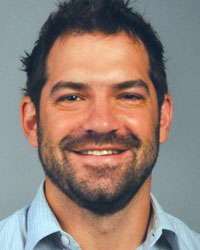 Aaron C. Kay
Aaron C. Kay
Duke University
What is the focus of your award-winning research?
At the broadest level, my research focuses on understanding how various individual-level existential and epistemic motivations manifest as specific beliefs and attitudes, especially those beliefs and attitudes that are relevant to pressing social and societal issues, ranging from injustice and inequality to political and religious ideologies and beliefs. More specifically, my research — which primarily employs experimental methodologies — seeks to answer a range of interrelated questions: How do people maintain beliefs in just and legitimate social systems despite glaring examples of injustice? What are the various psychological mechanisms and phenomena that prevent social change and maintain the status quo? What are the motivational bases of specific ideological and religious belief systems? Might many common, mundane-seeming actions and beliefs be due, at least in part, to the human attempt to explain and understand seemingly unexplainable instances of unfairness? In answering these questions, I have drawn primarily on two related theoretical orientations — system justification theory (Jost & Banaji, 1994) and compensatory control theory (Kay, Gaucher, Napier, Callan, & Laurin, 2008) — with the goal of leveraging these theories to help shed new light on important social phenomena while also searching for ways to further develop and refine the theories themselves.
How did you develop an interest in this area?
I’m going to cheat a bit here and use this question to answer the first part of the question below, because (truthfully) my mentors are the ones who developed my interests (and I have far too many people to mention below to fit into just that section). My advisors from my undergraduate days at McGill through my PhD at Stanford all contributed in different ways to my current interests. At McGill University, Mark Baldwin, my honors thesis supervisor, taught me that big, outside the head questions can be studied using precise social-cognitive methodologies. He turned me onto theories such as terror management theory, theories that excited me and deepened my passion for this field. At Stanford, I had two advisors, and they influenced my interests in complementary ways. Lee Ross emphasized, repeatedly, the value of a socially-relevant science. To Lee, psychological science is at its best when it is both consequential and counterintuitive — that is, when it can address something important or socially relevant, and do so in a way that makes us rethink our lay understanding of how the mind operates. I try very hard to keep this in mind when designing studies and developing ideas. My other advisor, John Jost, instilled in me the value of approaching studies in theory-driven ways. Capturing a wide set of phenomena through one theoretical lens is a goal I hold dear, and one I learned from John Jost. Beyond that, watching him develop system justification theory, and see it through despite the many challenges he was facing in those days, was very inspiring. It undoubtedly led to my interests in theory development and testing, which ultimately is the main working model of my lab.
Who are your mentors and/or biggest psychological influences?
I have already mentioned my two most important mentors above: Lee Ross and John Jost. They are my most proximal and important methodological and theoretical influences. But my research has been influenced by many, many other psychological scientists — some of whom I have not met, and others that I know well and with whom I have collaborated. These people are so important to my success that I’d like to take the opportunity here to mention as many of them as I can. They include my first wave of PhD students — Danielle Gaucher, Kristin Laurin, Steven Shepherd, Justin Friesen, and Jillian Banfield — who guided me to new research territory and kept me consistently inspired, energized, and in love with my job; my senior colleagues at University of Waterloo — Steven Spencer, John Holmes, Mark Zanna, Mike Ross, and Joanne Wood — who helped make the transition from PhD student to Assistant Professor as smooth and fun as possible; the groundbreaking research of eminent psychological scientists Leon Festinger, Melvin Lerner, John Bargh, Susan Fiske, Arie Kruglanski, Mahzarin Banaji, Ellen Langer, James Sidanius, Brenda Major, and the team of Greenberg, Pyszczynsk, and Solomon, who have all laid the foundation for the domains in which I now work; and my more contemporary intellectual inspirations, Gráinne Fitzsimons, Mark Landau, Adam Galinsky, Travis Proulx, Steven Heine, Richard Eibach, Jaime Napier, Ian McGregor, Mitch Callan, Kees van den Bos, and Michael Inzlicht.
What unique factors have contributed to your early success?
Two things, really. First, I have always been surrounded by very energetic and enthusiastic colleagues and collaborators. At Waterloo and now at Duke, I’ve had colleagues who are excited by their research, my research, and the field more generally. This makes it easy to stay productive and excited about my own research. The second thing is something I have noted before in a previous issue of the Observer. Lee Ross once told me that he thinks it is important to involve yourself in something “exciting” while in graduate school — that is, an idea or approach or perspective that you feel is new and different in some way. In looking back at my experience and those of my many successful peers, I see how much that advice has impacted me. Involving oneself in something that is “big” in the field or, better yet, is on the very edge of becoming “big” is an invaluable experience — or at least it was for me. I was fortunate to be around John Jost when he was developing a truly “big” idea.
What does winning this award mean to you both personally and professionally?
Personally, it is very nice to receive the recognition. Looking at the list of previous and current award winners, I am honored to be grouped with them. I already love what I do so much that nothing could make me enjoy being a psychological scientist any more — I’m at ceiling on that dimension. But winning this award does suggest that at least some people also think what I’m doing is worthwhile, and that is very gratifying.
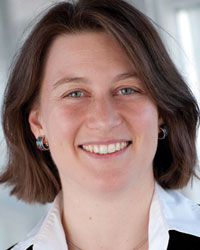 Iris-Tatjana Kolassa
Iris-Tatjana Kolassa
University of Ulm, Germany
What is the focus of your award-winning research?
My research focuses on the consequences of traumatic stress on the mind, brain, and immune system down to the molecular level. Furthermore, I investigate the biomolecular pathways in terms of genetic risk factors that contribute to the development of a fear network in which memories of traumatic events are stored. It is hypothesized that entire subclusters of this fear network may be activated in response to — in themselves — harmless cues, which may explain unwanted memories (intrusions) in posttraumatic stress disorder (PTSD). A better understanding of the biomolecular pathways involved in the development of the fear network might help in the long run to develop more effective psychotherapeutic interventions supported by psychopharmacological drugs or might even help to prevent the development of PTSD after traumatic events. Finally, I investigate the reversibility of immunological and molecular alterations in traumatized patients through psychotherapy. To find answers to these questions, I intensively collaborate with partners from molecular biology, molecular toxicology, immunology, genetics, and molecular medicine.
How did you develop an interest in this area?
I have always had a particular interest in biology, chemistry, and medical questions outside of psychological science. I think that this interest informed my psychological research interests from early on and motivated me to constantly cross disciplinary boundaries.
Who are your mentors and/or biggest psychological influences?
There were many people who influenced me and who should be mentioned here. However, some need a special thank you, and this select group certainly includes Thomas Elbert from the University of Konstanz. He was a fantastic mentor and inspired my research in many ways. He also always had the right words. Other important mentors were Brigitte Rockstroh of the University of Konstanz and Dominique de Quervain of the University of Basel, but also institutions such as the Zukunftskolleg of the University of Konstanz — a rather stimulating place where excellent postdoctoral fellows from various fields of research work freely and independently as fellows and exchange ideas across disciplines. Furthermore, we had great support in realizing our ideas — my time in the Zukunftskolleg was tremendous!
What unique factors have contributed to your early success?
There are some personal factors: I am, through and through, and with all my heart, a researcher. Furthermore, I have a high energy level and a high level of endurance, and I always have a new research idea in mind. Finally, my own enthusiasm is contagious. Other factors were more institutional: The University of Konstanz founded the Zukunftskolleg in 2007, an interdisciplinary Institute for advanced studies for excellent young postdocs. I served as a member of the governing board in establishing the Zukunftskolleg. We were able to apply for monetary support for new interdisciplinary projects or scientific retreats, received coaching and support in combining motherhood (in my case, with twins) with leading a research group. The interdisciplinary spirit of the Zukunftskolleg and the possibilities given to me definitely shaped my research.
What does winning this award mean to you both personally and professionally?
I feel very honored by this distinction, and I am very happy that my research is appreciated not only on a national but also on an international level. My work would not have been possible without my collaborators and the Zukunftskolleg of the University of Konstanz. I view this award also as a recognition of their contribution and of the transformative and collaborative spirit of the Zukunftskolleg.
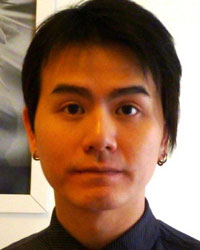 Hakwan Lau
Hakwan Lau
Columbia University
What is the focus of your award-winning research?
I study why some cognitive and perceptual processes are conscious while others are not.
How did you develop an interest in this area?
I studied philosophy as an undergrad in Hong Kong and was introduced to the debates on
consciousness by my excellent professor, Joe Lau.
Who are your mentors and/or biggest psychological influences?
Richard Passingham trained me in neuroscience when I started out as a graduate student with little background, and I’m eternally grateful. And then there is an endless list of collaborators and colleagues, scientists and philosophers alike who have given me a lot of inspiration. But above all, I’ve learned the most from my own students, especially Dobromir Rahnev and Brian Maniscalco.
What unique factors have contributed to your early success?
Great teachers, culture-shock-and-loneliness-induced diligence in grad school, and a lot of luck.
What does winning this award mean to you both personally and professionally?
Of course, personally it’s a great honor. But I feel particularly happy that my kind of work is being recognized by APS, perhaps because consciousness is still sometimes seen — at least in some circles — as a topic too abstract or vague to be studied seriously by young researchers. I hope this recognition may be good for my field.
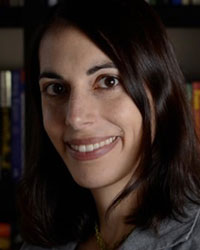 Tania Lombrozo
Tania Lombrozo
University of California, Berkeley
What is the focus of your award-winning research?
My research lies at the intersection of cognitive psychology and analytic philosophy. I’m particularly interested in how people learn about and understand the social and physical worlds. This is a very broad topic, and I’ve approached it by focusing on explanation. For example: Why are children and adults so motivated to explain? What makes some explanations so much more satisfying than others, and what are the consequences of these explanatory preferences for learning and decision making? How and when does explaining guide inference? Why does explaining — even to oneself — generate a greater sense of understanding, and when is this sense veridical? Studying explanation provides a valuable window into foundational aspects of cognition and has important ties to issues in philosophy of science and epistemology, as well as implications for education and artificial intelligence.
When not explaining explanation, I explore related topics that bridge psychological science and philosophy, including causal judgments, categorization, moral reasoning, and scientific understanding inside and outside the classroom.
How did you develop an interest in this area?
While in high school, I stumbled upon Steven Pinker’s The Language Instinct and became fascinated by a scientific approach to the mind. I promptly read every book that I could find with “cognitive” in the title. This led me to discover that the university in my hometown, University of California, San Diego, was a great resource for cognitive science. I was lucky enough to enroll in “Philosophy of Cognitive Science” with Paul Churchland as a senior in high school, to work with Kara Federmeier and Marta Kutas as a research assistant the summer after my high school graduation, and to work with Don MacLeod the summer after that. With this early and fantastic introduction to both philosophy and psychological science research, I was hooked.
As an undergraduate at Stanford University, I was able to study the philosophy of science with professors like Peter Godfrey-Smith, Michael Strevens, and Branden Fitelson alongside an impressive cohort of undergraduate and graduate students, including Michael Weisberg. I was struck by the parallels between issues in philosophy of science and those in human cognition. Like scientists, children and adults must understand the world around them on the basis of limited data, and they do so with the aim of explaining, predicting, and controlling their environment. It turns out that others noted this parallel long before I did, including Susan Carey (who became my graduate advisor) and Alison Gopnik (a current colleague and valued mentor).
Who are your mentors and/or biggest psychological influences?
I’ve already mentioned several key players in my path to becoming a psychological scientist. Steven Pinker’s popular writing first introduced me to cognitive science, and Pinker himself later served as a member of my dissertation committee. Even though I was a high school student at the time, Paul Churchland let me enroll in his upper-division philosophy course, Marta Kutas welcomed me into her lab as a summer intern, and Kara Federmeier served as a generous mentor. Now that I’m a professor, I better appreciate how fortunate I was to have these opportunities.
As an undergraduate, Peter Godfrey-Smith, Joshua Tenenbaum, and Ellen Markman were important influences, with the former two eventually serving on my dissertation committee as well. All three exemplify valuable ways in which philosophical ideas can be fruitfully combined with empirical findings and research.
Susan Carey was an outstanding graduate advisor and mentor who serves as a model for “philosophical psychology” and raw smarts. I also benefited enormously from the cognitive science communities at Harvard and MIT, and was lucky to find additional mentors and advocates at other universities, including Steven Sloman and, later, Barbara Spellman.
As an assistant professor, I find myself in a department that supports my interdisciplinary interests. Alison Gopnik has been an especially helpful colleague and mentor who artfully bridges philosophy and psychology within and beyond the academy.
And finally, I have to mention my parents and my husband, who have been and continue to be “psychological influences” in all senses.
What unique factors have contributed to your early success?
Beyond the opportunities and mentors noted above, I’ve experienced both the advantages and disadvantages of working at the intersection of two disciplines. I’m too “psychological” for a philosopher and too “philosophical” for a psychologist, but as a result I’m in a position to benefit from the ideas and methods of both fields, and I feel at home in a small but growing community of like-minded researchers blurring the boundaries between these disciplines.
What does winning this award mean to you both personally and professionally?
It’s an enormous honor to have my research recognized by the APS and to appear in such distinguished company.
While psychological science has made considerable strides towards gender equity, my involvement with philosophy — in which women are still seriously underrepresented — makes me especially pleased to receive an award that recognizes the important contributions of Janet Taylor Spence, a role model as a scientist and woman in academia as well as a pioneering researcher of gender and attitudes toward women.
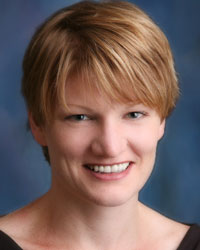 Candice Odgers
Candice Odgers
University of California, Irvine
What is the focus of your award-winning research?
My research focuses on how disparities in children’s mental and physical health emerge across contexts and over time. The life chances of children vary tremendously by location and early life experiences. For example, a child born in a poor neighborhood can expect to die sooner and spend more of her life afflicted with mental health problems than she would if she was born into relative affluence. Likewise, the boy who is persistently disruptive in class is not only at risk for a life of crime, but is also more likely to suffer from chronic inflammation and subsequent heart disease. By working across disciplines and between countries, and by following children over time, we have been able to isolate early determinants of children’s later well-being and ask how the contexts that children are embedded in can alter their life chances. More recently, my research team has been leveraging new technologies, including mobile-phone surveys and text messaging, to identify daily triggers of adolescent health-risk behaviors. We have also been using online tools, such as Google Street View, to trace the effects of neighborhood settings on child health.
How did you develop an interest in this area?
While completing my master’s degree in criminology, I worked as a court-appointed advocate for adolescents involved in the juvenile justice system. Two reoccurring themes emerged from my time with these adolescents that continue to shape my research program: (1) the mental and physical health needs of these vulnerable adolescents cannot be easily separated, and (2) the behaviors (namely substance use and aggression) that exact the largest toll on adolescent’s future lives are best understood within the family, peer, and neighborhood contexts in which they occur.
Who are your mentors and/or biggest psychological influences?
While sitting in a café in Poland, Dick Reppucci (my soon-to-be PhD advisor) convinced me that, despite my varied background, I was a psychological scientist at heart. He was right. The years that followed at the University of Virginia provided transformative training in developmental theory and quantitative methods with John Nesselroade and Jack McArdle as well as an invaluable introduction to community psychology and the “power of social settings” to influence individual behavior from Dick Reppucci. When I left Virginia for London, my postdoctoral mentors Terrie Moffitt and Avshalom Caspi opened up a world of opportunities and modeled how first-rate science is executed. They continue to provide inspiration, mentorship, and intellectual guidance for my work today. At the University of California, Irvine, I was fortunate to start my career surrounded by entrepreneurial colleagues, including Greg Duncan, Jodi Quas, Jennifer Skeem, and Carol Whalen, and my long-standing collaboration with Marlene Moretti continues to influence how I approach knowledge translation. Looking beyond the borders of psychological science, I have benefited enormously from working with leading thinkers in sociology (Robert Sampson), epidemiology (Clyde Hertzman), criminology (Daniel Nagin), psychology and law (John Monahan), and psychiatry (Edward Mulvey).
What unique factors have contributed to your early success?
Early in my career I was told that the way to make a novel contribution to science was to (1) be brilliant or (2) import innovative approaches from other disciplines into your own. I opted for the second strategy and have learned an incredible amount in the process. I am constantly amazed at the unexpected synergies that emerge when moving across disciplinary boundaries and the innovative ways in which people around the world and across campus are approaching complex problems. I have also learned a great deal from my relationship with the William T. Grant Foundation, an organization that has helped me to stretch into new areas and work outside of my comfort zone. Perhaps most importantly, I have benefited tremendously from working with interdisciplinary study teams, including the Dunedin Multidisciplinary Health and Development Study based in New Zealand and the Environmental Risk Longitudinal Twin Study based in the United Kingdom.
What does winning this award mean to you both personally and professionally?
Personally, the news of the award evoked gratitude — to my colleagues who supported the nomination and to my mentors and funders who have taken chances on me and my ideas. Professionally, the news was humbling and inspiring, because I realized that my work would now be associated with Janet Taylor Spence, a scholar who has opened so many doors for women in science through both her discoveries and her career path.





APS regularly opens certain online articles for discussion on our website. Effective February 2021, you must be a logged-in APS member to post comments. By posting a comment, you agree to our Community Guidelines and the display of your profile information, including your name and affiliation. Any opinions, findings, conclusions, or recommendations present in article comments are those of the writers and do not necessarily reflect the views of APS or the article’s author. For more information, please see our Community Guidelines.
Please login with your APS account to comment.